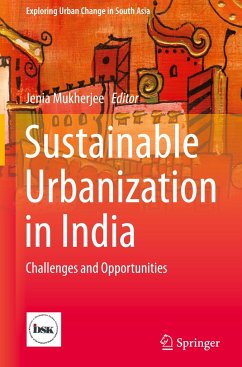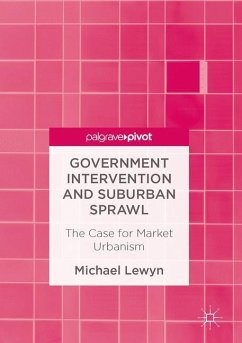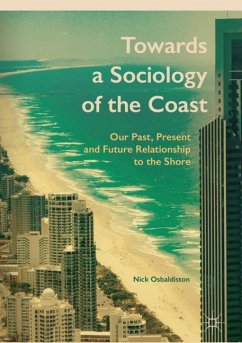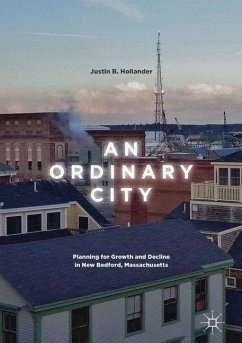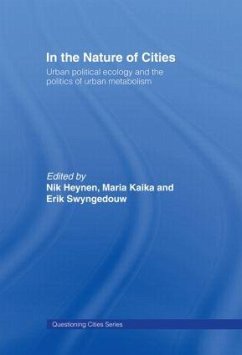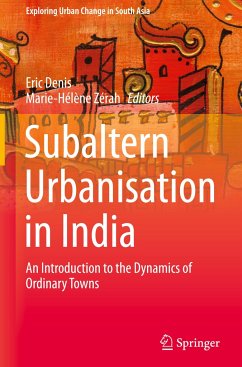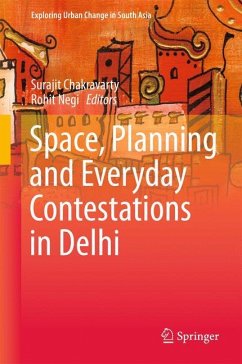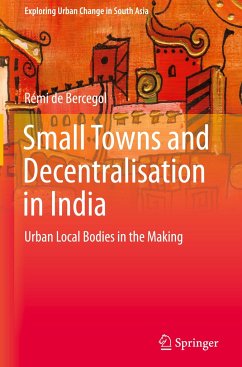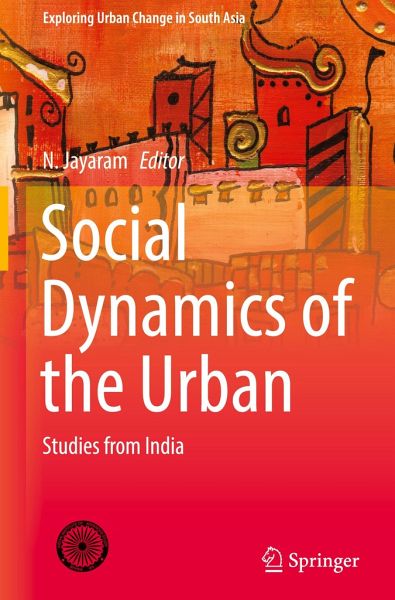
Social Dynamics of the Urban
Studies from India
Herausgegeben: Jayaram, N.

PAYBACK Punkte
42 °P sammeln!
This volume emphasises the sociological view that cities are primarily about people, not places or buildings, and explores the social dynamics of urban space in globalising India. Distinguishing between 'locale' and 'milieu' and the community-cosmopolitanism dialectic in urban areas, it elucidates the thematic for urban sociology today.The chapters explore the various perspectives and processes in understanding the urban predicament in India today. The contributors specifically ask: What are the characteristics of the fastest growing cities in India? What are the forces shaping their forms and...
This volume emphasises the sociological view that cities are primarily about people, not places or buildings, and explores the social dynamics of urban space in globalising India. Distinguishing between 'locale' and 'milieu' and the community-cosmopolitanism dialectic in urban areas, it elucidates the thematic for urban sociology today.
The chapters explore the various perspectives and processes in understanding the urban predicament in India today. The contributors specifically ask: What are the characteristics of the fastest growing cities in India? What are the forces shaping their forms and processes? Who benefits from what type of livelihood options cities offer? How have city administrations been dealing with mounting demands for housing, energy, and water resources, and problems of mass transportation? What implications do these have for the ecology of the city and the surrounding areas? Given the heterogeneity of urban populations, what social processes are at work and how they affect cit[y]zenship and identity? What aspirations and tensions are expressed among different groups, and what implications do these have for inter-group relations? What challenges do inter-group relations pose for urban planning and administration? The contributors include renowned scholars as also young researchers. They go beyond their disciplinary moorings of economics, history, political science, social work, and sociology, and their trans-disciplinary dialogues carry inputs from policy makers, administrators, and grassroots activists working in urban areas.
The chapters explore the various perspectives and processes in understanding the urban predicament in India today. The contributors specifically ask: What are the characteristics of the fastest growing cities in India? What are the forces shaping their forms and processes? Who benefits from what type of livelihood options cities offer? How have city administrations been dealing with mounting demands for housing, energy, and water resources, and problems of mass transportation? What implications do these have for the ecology of the city and the surrounding areas? Given the heterogeneity of urban populations, what social processes are at work and how they affect cit[y]zenship and identity? What aspirations and tensions are expressed among different groups, and what implications do these have for inter-group relations? What challenges do inter-group relations pose for urban planning and administration? The contributors include renowned scholars as also young researchers. They go beyond their disciplinary moorings of economics, history, political science, social work, and sociology, and their trans-disciplinary dialogues carry inputs from policy makers, administrators, and grassroots activists working in urban areas.



